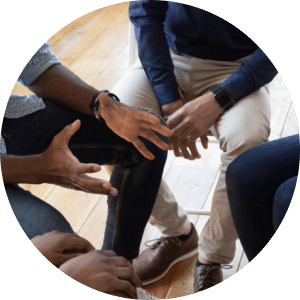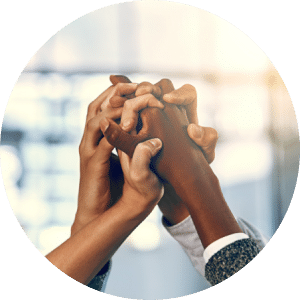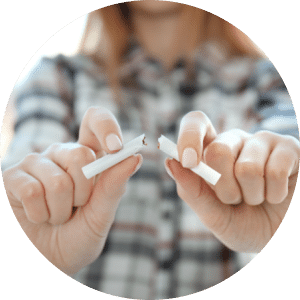Ready For Your NextStep in Recovery?
Fusion Recovery has aCompassionate, Comprehensive Path to Recovery and Reintegration
Why Fusion Recovery

Modernized, New Facilities
Experience recovery in a newly renovated, comfortable, and secure setting. Fusion Recovery’s facility includes brand-new amenities, such as custom-made beds and big-screen TVs, providing a peaceful, homelike environment where clients can focus on healing.

Comprehensive, Integrated Services
Your complete path to recovery, all in one place. Fusion’s program includes counseling, Medication-Assisted Treatment (MAT) options, holistic wellness, and aftercare planning, with all essential services under one roof. Our program is designed to support each stage of reintegration, including Intensive Outpatient Program (IOP) and Outpatient Program (OP) services, so clients can choose the level of care that suits their journey.

MAT-Friendly Housing
Fusion Recovery’s Residential Reentry Program is methadone- and MAT-friendly, offering medication options like methadone, buprenorphine, and Suboxone for clients managing opioid dependence. All medications are securely stored and administered under state guidelines, providing a safe, supportive environment for clients requiring medication in recovery.

Better Outcomes, Stronger Support
Tailored support for a safer, successful transition back to the community. With trauma-informed care, on-site case management, and personalized aftercare planning, Fusion provides the tools needed for long-term success and community reintegration.
How we Serve You.
On-Site Counseling Services





Learn more about our
Intensive Outpatient Program

Medication-Assisted Treatment (MAT)


Transportation Support
Additional Support and Compliance are available
and Peer Support
- Wellness includes mindfulness, recreation, and stress management.
- Holistic resources build resilience and balance.
- Peer-led support fosters community and accountability.
- Modeled after successful programs for lasting sobriety.
Aftercare Planning
-
Emphasis on family engagement
and support. -
Individualized aftercare plans for
each client. -
Family communication
fosters strong post-program support. -
Framework for success beyond
program completion.
Job Skills Development
- Continued support withhousing and outpatient care.
- Assistance with job placement and readiness training.
- Financial literacy resources for strengthened independence.
- Builds confidence for community reintegration.

Everything youneed to know
Transitional housing offers temporary, structured environments to help individuals gradually reintegrate into the community, while permanent housing provides long-term stability
Reintegration housing often includes access to mental health counseling and peer support, helping residents manage conditions like anxiety, depression, or trauma that may impact recovery
Yes, many reintegration programs, including Fusion, encourage family participation, which may include family counseling sessions and involvement in aftercare planning
Common rules may include curfews, sobriety checks, restricted access to certain areas, and participation in scheduled counseling sessions, designed to create a safe, sober environment
Many programs, including Fusion, offer vocational counseling, job readiness training, and assistance with job searching to help residents gain employment as they transition out of the program
Programs typically have relapse management protocols in place, which may include counseling, adjustments to the treatment plan, or other interventions to support the resident in returning to sobriety
Yes, programs like Fusion offer MAT for individuals managing opioid dependence, with secure storage and monitoring in place to ensure compliance with state regulations
Reintegration housing often includes 24/7 staff, secure entry and exit, and regular check-ins to maintain a safe environment for residents focused on recovery
Activities may include life skills workshops, recreational programs, community outings, and peer support groups, all aimed at helping residents transition smoothly back into daily life
Many programs provide aftercare planning, connecting residents with community resources, outpatient counseling, and continued case management to support long-term success

 / © 2026
/ © 2026
